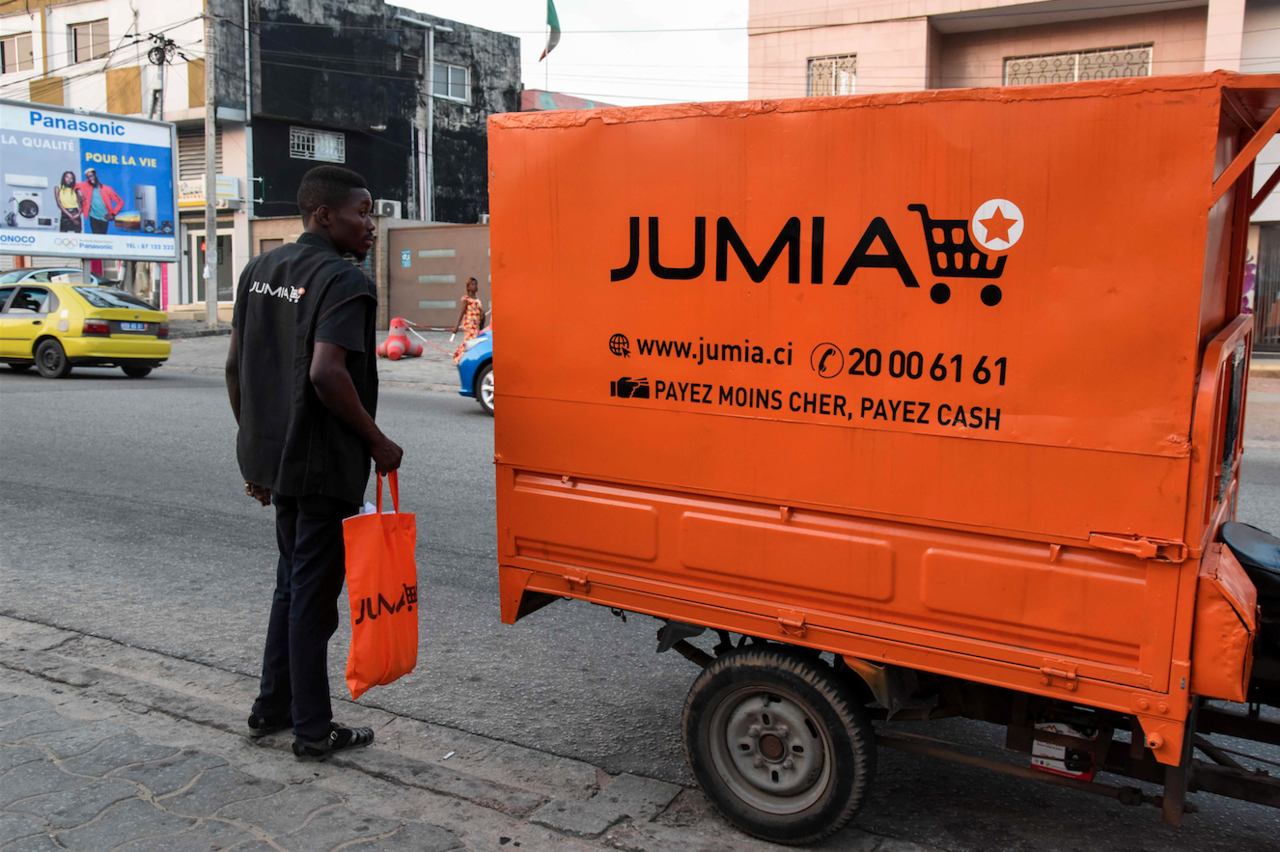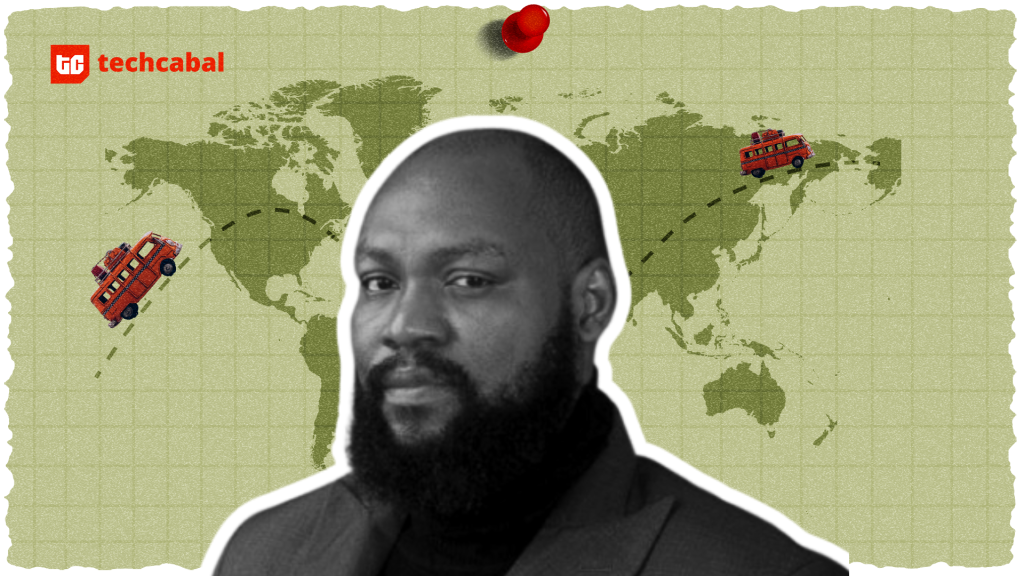|
|
|
|
|
|
|
|
in partnership
with
FLUTTERWAVE |
31.07.2020 |
|
|
|
|
|
Hello there,
Welcome to TC Daily! In today’s digest: Jumia briefly reclaims unicorn status, Zimbabwe’s Strive Masiyiwa is having a hard time selling part of his stake in Liquid Telecom, and Huawei’s dominance in Africa has a new challenger.
Please take a moment to subscribe to our newsletter if this email was forwarded to you.
|
|
|
|
|
|
|
|
|
Get access to quality medical consultations from licensed Medical Doctors right from the comfort of your home, at any time and at the tip of your fingers.
Here’s a great opportunity for Medical Practitioners to earn more money from consultations. Learn more here.
|
|
|
|
|
|
|
Jumia is making a resurgence on the stock market. The online retailer’s share price has consistently increased since May 14 when it traded at $3.95 with a market capitalisation of around $309 million. But on July 30, its stock made an impressive performance, rising above $13. It peaked at $13.36 according to Bloomberg data, giving Jumia a valuation of at least $1 billion – its highest level since August 2019. Jumia’s stock ended the day priced at $12.67 with a market cap of $993.43 million.
|
|
|
|
|
There is no clear explanation for this recent growth. A few investors on Twitter have been bullish for some weeks, believing that its shares could “reach for the moon” soon. My basic understanding after speaking with one of them is
they’re anticipating impressive results following the company’s 8th annual anniversary sales promotions which started in June.
That said, there is a lot of optimism around Jumia in recent months. High losses and a challenging path to profitability are two challenges the company has faced over the last eight years. But in its Q1 2020 financial report, it doubled down on plans to control losses and chase profits. In Q1, Jumia lost less money for the first time in six consecutive quarters despite pandemic supply chain challenges. The company’s balance sheet also improved by
12%, slightly reducing capital worries as global economic uncertainty rises.
Meanwhile, Jumia is recording fast growth in its other businesses like JumiaPay and Jumia Food. The latter is growing at around 30% month on month benefitting from an increase in the number of logistics operators in Nigeria, its biggest market. Additionally, Jumia has expanded fully to South Africa, leveraging the architecture of its existing online fashion retailer, Zando.
Yet, the pandemic is having mixed results on Jumia’s businesses. On the one hand, there is a greater
incentive to shop online to reduce the spread of the virus. On the other hand, the pandemic has caused economic challenges and is having a negative impact on income levels in Jumia’s key markets. Also, its biggest market, Nigeria is at risk of a recession caused by both the pandemic and unstable global oil prices.
We should get a better understanding of Jumia’s market realities when it publishes its Q2 earnings report on August 12.
|
|
|
|
|
|
|
|
|
Zimbabwean businessman, Strive Masiyiwa, is under pressure from a tight deadline to sell some shares in Liquid Telecom, the cloud and fibre company. According to Bloomberg, the billionaire wants to sell up to 34% equity in the
company for as much as $600 million. The sell will help offset a $375 million loan he used to finance his pay-TV company, Kwese, which failed in 2019. The loan was backed by the Public Investment Corporation, South Africa’s state-owned asset management company managing a $135 billion fund. As collateral for the loan, Strive pledged shares in Liquid Telecom. He planned to do an IPO for the telco in early 2020, but that plan was cancelled.
Since then and with the pandemic, he has struggled to find buyers for the limited stake in the company. Bloomberg reports that potential buyers wanted more time to assess the effects of the pandemic and control measures on the African economy. But Strive has limited time. After already granting one extension, the PIC has reportedly given him till the end of August to conclude a deal.
|
|
|
|
|
|
|
|
|
The African tech ecosystem is having serious conversations about the “colour of investment” into the continent. Foreign capital flows more into foreign-led companies, causing some to question if investors have a funding bias against local founders. It’s a serious question. However, while that conversation is ongoing, there is also the realisation that outside South Africa, African investors and high net worth individuals have
continued to shy away from backing local companies.
Instead, African investors are focused on proven industries like construction, real estate, oil and gas and traditional financial services. When Nigerian veteran banker, Jim Ovia, led a $5 million round in fintech startup, TeamApt in 2019, that was an exception. Another former Nigerian banker, Tony Elumelu has previously made two similar public investments in tech startups; both non-African.
According to Forbes, in February 2014, Elumelu’s investment company, Heirs Holdings invested an undisclosed amount in US company, Planet Labs. And in December 2014, he backed Wonderloop, a company founded by Norwegian entrepreneur Hanna Aase. Since 2015, He has focused on backing African early-stage ideas through a $100 million fund that invests up to $5,000 in local founders.
Other financial heavyweights like Africa’s richest man, Aliko Dangote and Atedo Peterside sit on the board of Endeavor Nigeria, a high impact startup fund. However, it is unclear if either of these gentlemen has invested their own money in tech startups.
In this Business Day article, Frank Eleanya writes that the last time local investors dominated tech investing in Nigeria was in the early 2000s. Back then, Nigerian investors and banks laid the foundation that ushered in the telco boom which has had a transformative impact. In that article, Eleanya asks can Nigerian investors
lead tech investments again?
|
|
|
|
|
|
|
|
|
|
|
|
|
This week on the China Africa Project’s podcast hosted by Eric Olander, I was asked an interesting question. Have the efforts of the US government made any impact on Huawei in Africa? There’s a lot here.
Huawei is at the centre of the US-China dispute more so as the 5G race hits up. The Trump-led US administration is forcing allies to stop the use of Huawei’s technology in their future telecom infrastructure projects. In the most recent case, the US has told Brazil there would be “consequences” if it allows the Chinese company to supply 5G equipment.
However, in Africa, Huawei doesn’t seem to have much to be concerned about. Since 2016, the US government has practically ignored the continent as it recedes from global politics. In an infamous remark in 2018, Trump referred to African countries as “shitholes” and has made minimal policy measures for the region.
With US interest low, Huawei has bolstered its presence in Africa building new data centres and other infrastructure. According to US military publication, SOFREP, Huawei is the dominant telecom builder in Africa and is responsible for 70% of the continent’s 4G infrastructure. In South Africa, the company partnered with telecom company Rain to roll out the country’s first standalone 5G network a few months ago. Kenya’s Safaricom says it will use Huawei’s equipment to
develop its 5G. And in Nigeria, the government recently approved a 2018 initiative to expand fibre infrastructure across the country. Huawei is providing technical support for this project.
“What will we do in terms of the American statements about not using Huawei?” asked Michael Joseph, Safaricom’s acting CEO told Reuters in February. “We don’t have that situation in Africa,” he said.
However, one US company, Parallel Wireless, is trying to upend Huawei’s infrastructure lead on the continent. Using a new standard called OpenRAN, Parallel Wireless is helping telcos to adopt vendor-neutral equipment to build their infrastructure, essentially reducing Huawei’s leverage. The US company is led by Steve Papa who believes the 5G race is a zero-sum game. His company is building for MTN and Vodacom in Africa, and earlier this year Ghana announced it will use Parallel Wireless’
technology to connect 1,000 communities.
Huawei shouldn’t get too comfortable, I guess.
|
|
|
|
|
|
|
|
TC LIVE WITH TOKUNBOH ISHMAEL
|
|
|
|
|
The next TC Live session is holding today Friday, July 31st. We will interview Tokunboh Ishmael, co-founder and Managing Director at Alitheia Capital whose portfolio companies include MAX, Lidya and Tomato Jos. Alitheia Capital is one of the continent’s most prolific local investors. Ms Ishmael has a 20-year experience spanning investment banking, private equity investing, technology and new business development on and off the continent. She will answer questions in an interactive session about Building in Africa. Register here to join the session.
|
|
|
|
|
|
|
|
|
|
|
|
|
|
|
|
|
|
|
|
|
See you next week.
– Abubakar
|
|
|
|
|
Share TC Daily with your friends!
|
|
|
|
|
|
|
Copyright © 2020 Big Cabal Media,
All rights reserved.
You are receiving this email because
you signed up on TechCabal.com
Our mailing address is:
Big Cabal Media
18, Nnobi Street, Animashaun, Surulere, Lagos
Surulere 100001
Nigeria
Add us to your address book
Want to change how you receive these emails? You can
|
|
|
|
|







